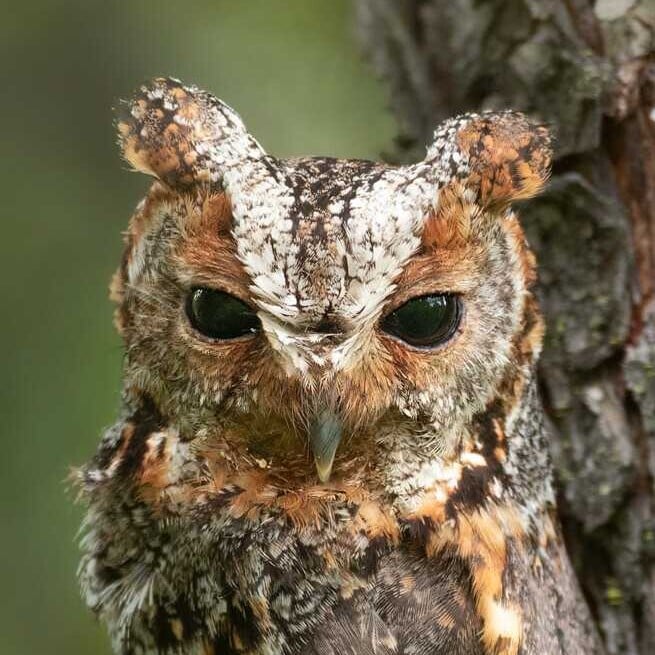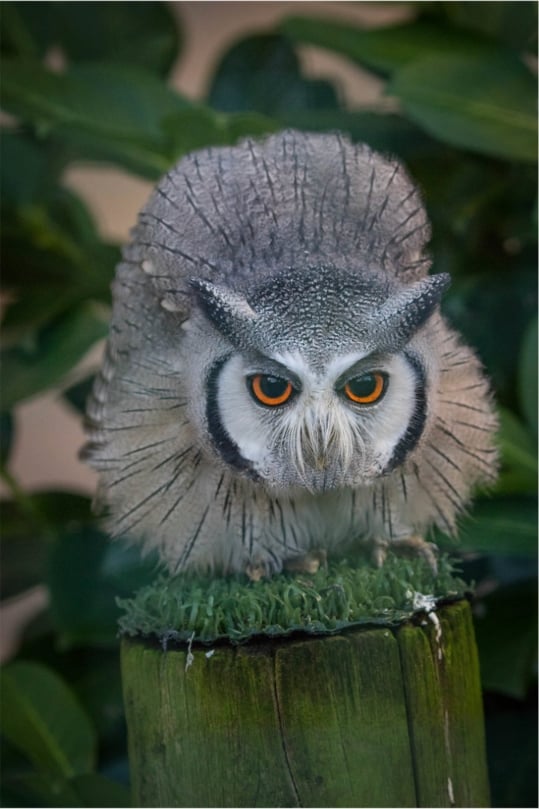Yes, it’s because they want screetches.
Screeches love scritches!
Hey, an owl that is a subject of my interests. I don’t suppose anyone knows in Nahuatl if “Chicuatli” refers to screech owl or a barn owl?
I love when these threads start to different from just cute pictures!
The translation does seem to be pretty confusing. Looking at online Nahuatl dictionaries, some do call it a Barn Owl, while some a Screech Owl. So I looked thought, you can’t get much more distinct than a tuftless, large, Barn Owl and a small, round, tufted Screech Owl, so let’s look at some pictures!
I can’t read this page, but some have definite tufts like a Screech Owl, then there’s one that looks much more like a vulture, and then ones with facial discs like a Barn Owl.
With Spanish using lechuza for the Barn Owl and witch lady, I don’t know if that further complicated things translating them into modern language.
One source also said the name was after the sound the bird made, but since I don’t know how to pronounce chicuatli, that doesn’t help me very much.
So not only have been down that rabbit hole, but I’ll raise you:
https://nahuatl.wired-humanities.org/content/chicuatli
If you look up the day birds in the Codex Borgia the sixth day bird "Chicuatli’ has a white face (10 has a human skull so leave a bit of wiggle room for artist interpretation).
Edit: “but since I don’t know how to pronounce chicuatli” ~ Chee-kwat-lee
I study Aztec history for fun.
I did read that one too. That’s where I saw they get the name from the sound, but I accidentally posted before I was finished.
Looking at the distribution maps of both owls, the Screech Owls dont seem to be in the Pacific coast, so could it just be a localized thing? If you have an animal that’s important to your beliefs, but you wind up in a place without those, maybe they just adapted to what they had there.
What is the most surprising Aztec fact you’ve come across? I don’t know too much beyond a chapter or 2 from high school history class.
Most surprising fact: A holiday that took place in Tenochtitlan dedicated Xipe Totec that lasted 20 days, which involved youths doing mock battles in the city wearing the flayed skin of sacrifice victims.
Best surprising fact to bring up in polite company: There used to be feather workers that would make mosaics as an artform.
The first fact is definitely interesting, but the second is the type of surprise I was hoping for!
Just from reading the Mexican Featherwork on Wikipedia, the was a ton of information in there. It’s strange to think if the same people performing human sacrifice and also doing such delicate and fancy art. Birds in general seem to be very prominent in there beliefs. I’ll have to check this out more.
Thanks!
Looks like a Muppet.



